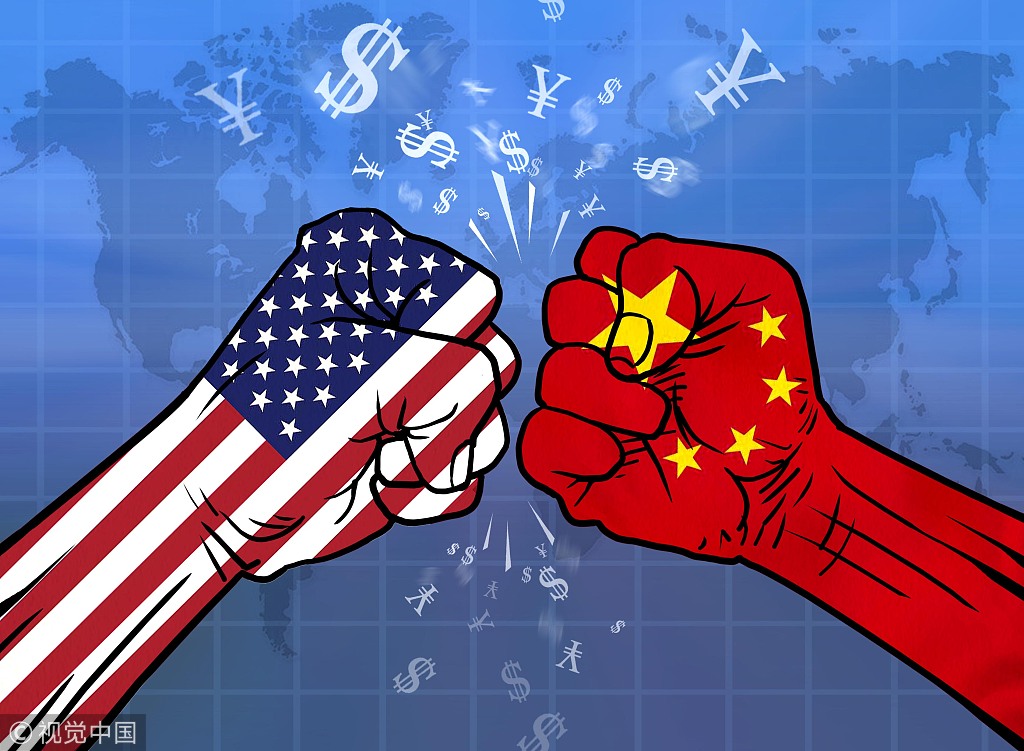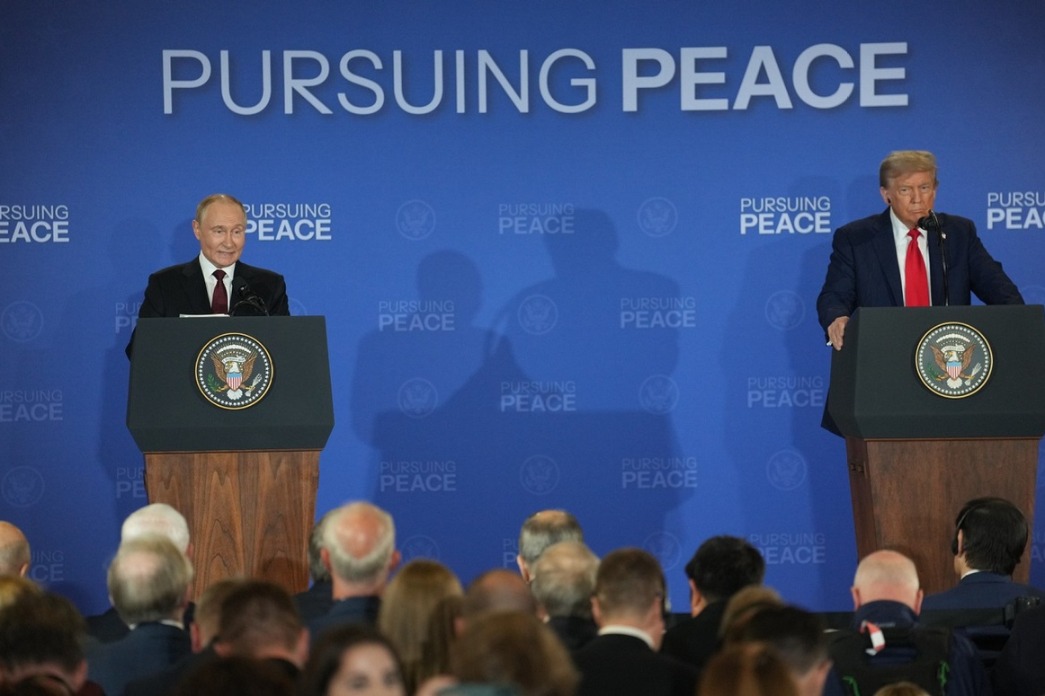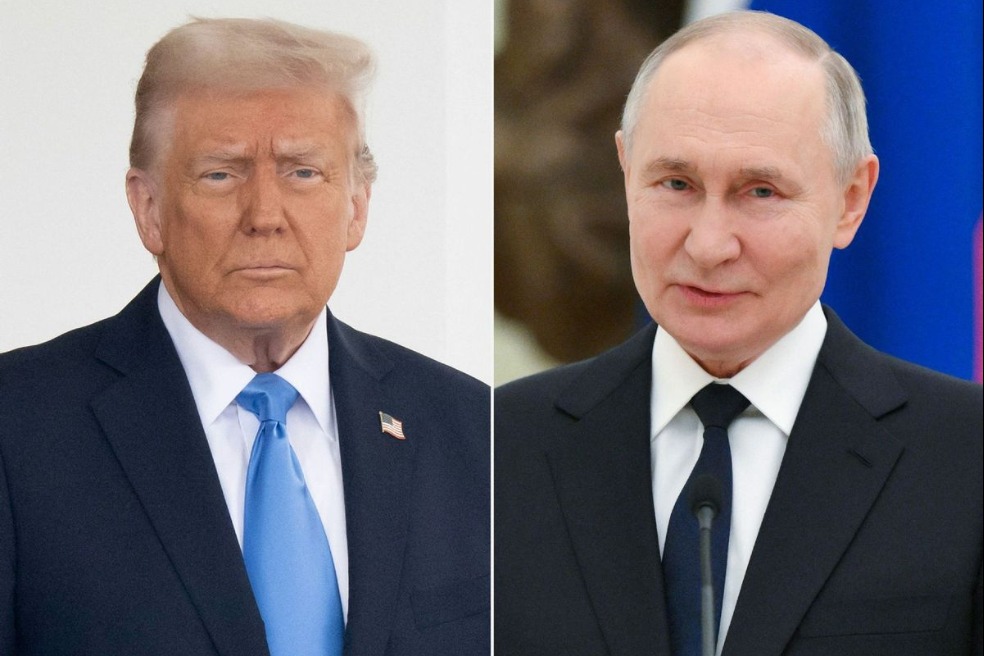China can overcome a trade war


The tariff war the United States has launched against China shows no sign of abating, as the Donald Trump administration made good its threat to impose 25 percent tariff on another $16 billion worth of Chinese imports on Thursday. Instead, since the US has threatened to slap tariffs on $500 billion worth of Chinese goods, or on almost all Chinese imports, the trade conflict seems set to intensify.
Thanks to its national strength and moral righteousness, as well as its objective assessment that the US' tariff war will have a limited impact on the Chinese economy, China is confident and capable of safeguarding the core interests of the country and its people. The trade dispute, however, will affect on three areas-foreign trade, investment (including overseas investment) and the macro-economy. But the impact is likely to be limited and manageable.
Foreign trade will feel limited impact
As for foreign trade, if the US slaps 25 percent tariff on $50 billion of Chinese imports, the growth of China's exports to the US would decline by 3.39 percent, but its total export growth would reduce by a mere 0.75 percent. If the US imposes 10 percent tariff on $200 billion worth of Chinese goods, China's export growth to the US would decline by 9.26 percent and overall export growth by 2.06 percent. And if the US slaps 25 percent tariff on $200 billion of Chinese goods as it has threatened, China's export growth would drop by 18.07 percent and total export growth by 4.02 percent.
In the most extreme scenario, that is, if the US impose 25 percent tariff on all Chinese imports, China's export growth to the US would fall by 37 percent and its overall export growth by 8.24 percent.
As far as China's imports are concerned, the growth of US imports to China would drop by 9.84 percent and the total import growth by a mere 0.7 percent if China imposes 25 percent retaliatory tariff on $50 billion worth of US goods. And the growth of US imports to China would fall by 25.75 percent and its overall import growth by 1.82 percent if China takes more countermeasures and imposes 25 percent tariff on all US imports.
Thus the Sino-American trade conflict will have a limited impact on China's overall foreign trade, although it will influence bilateral trade. But considering that US imports comprise just 7.08 percent of China's total imports, a trade war will not have a big impact on China's imports.
It goes without saying, though, that China's exports would bear the brunt of a trade war, as Chinese exports to the US account for 22.27 percent of its total exports.
But even under the most extreme circumstance-the US imposing 25 percent tariff on all Chinese imports-China's export growth would drop by only 8.24 percent while its negative growth would be merely 0.34 percentage points, which China can jolly well withstand. After all, China's export growth was minus 16.01 percent at the height of the global financial crisis in 2009, while it was minus 2.94 percent and minus 7.73 percent in 2015 and 2016, respectively. Given that China has not only survived those extremely difficult times but also emerged stronger, it is capable of withstanding the potential battle ahead.
Influence on investment can be controlled
In terms of investment, foreign-invested enterprises in China would become the biggest victims of the Trump administration's trade policies as their products account for 43.19 percent of China's total exports and 70 of the top 100 exporting companies to the US are foreign-invested companies. Therefore, foreign companies in China would feel the acute pain of a trade war, and could lose some confidence in China's investment climate.
But until now foreign investment in China has not been affected. In fact, its actual use of foreign investment increased 4.07 percent in the first half of this year, compared with 3.99 percent last year. Moreover, the number of foreign direct investment projects approved by China has risen 96.6 percent year-on-year, a large increase from 27.8 percent in 2017.
Of course, China's investment in the US will be significantly lower as the US has threatened to put further restrictions on Chinese companies' investment in the Section 301 report.
As a matter of fact, if that were to happen, Trump administration's plan to bring American enterprises back to the US and attract more foreign investment would be jeopardized, which in turn would interfere with the US government's goal to create more jobs in America.
The reform of the US Committee on Foreign Investment that the Trump administration has pushed through might impose more restrictions on China's investment in the US, which could greatly diminish Chinese companies' confidence to invest in the US. In fact, Chinese investment in the US slowed down in the first year of Trump's tenure, with a US Commerce Department report saying Chinese investment has declined significantly.
The latest report issued by Rhodium Group, a leading independent research provider, shows Chinese companies' mergers and acquisitions and greenfield investments in the US in the first half of 2018 slumped more than 90 percent year-on-year to merely $1.8 billion.
No great impact on macro-economy
At the macroeconomic level, China's GDP would reduce by only 0.398 percent even if the US slaps 40 percent tariff on all Chinese imports, which would not significantly alter China's employment outlook. It is estimated that a trade war would not greatly influence China's price level or the yuan's exchange rate as there is no reason for its longterm depreciation.
More important, the Chinese government is fully capable of managing and reducing the impact of a trade war by taking the following measures.
To begin with, the government can take necessary measures to stabilize and expand exports, an area in which it has gained valuable experience.
In the first half of this year, the authorities have already announced many measures to reduce import tariffs, which are expected to take effect in the second half. Besides, the first China International Import Expo, to be held in Shanghai in November, will certainly help promote imports. And China can improve its investment environment to attract more foreign investment and diversify its overseas investment to minimize the effects of a trade war. In short, China can and will overcome a trade war with the US, although it is opposed to any trade wars.
The author is the deputy director of and an associate research fellow at the International Trade Research Center of the Institute of World Economics and Politics, Chinese Academy of Social Sciences.


































